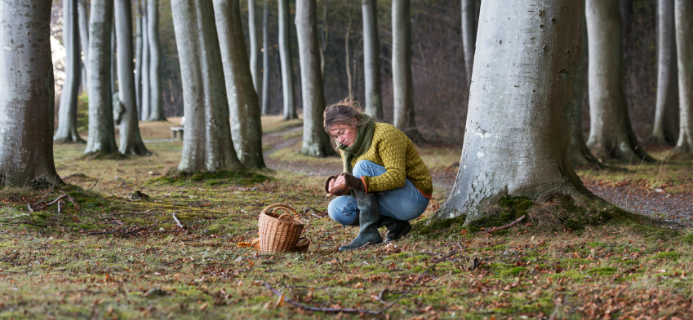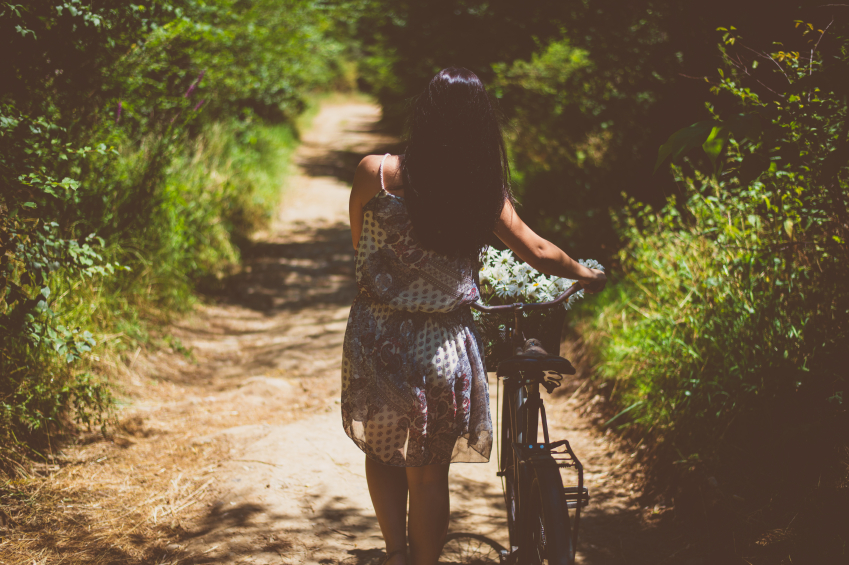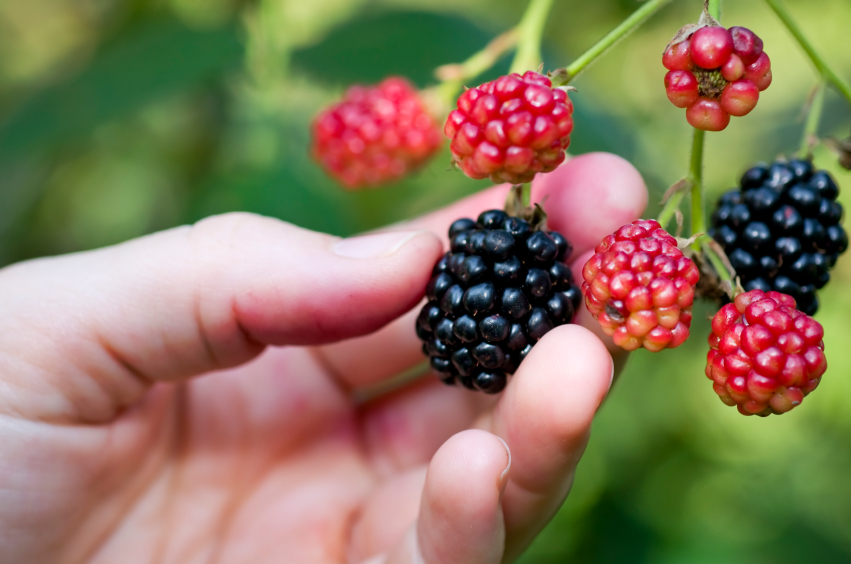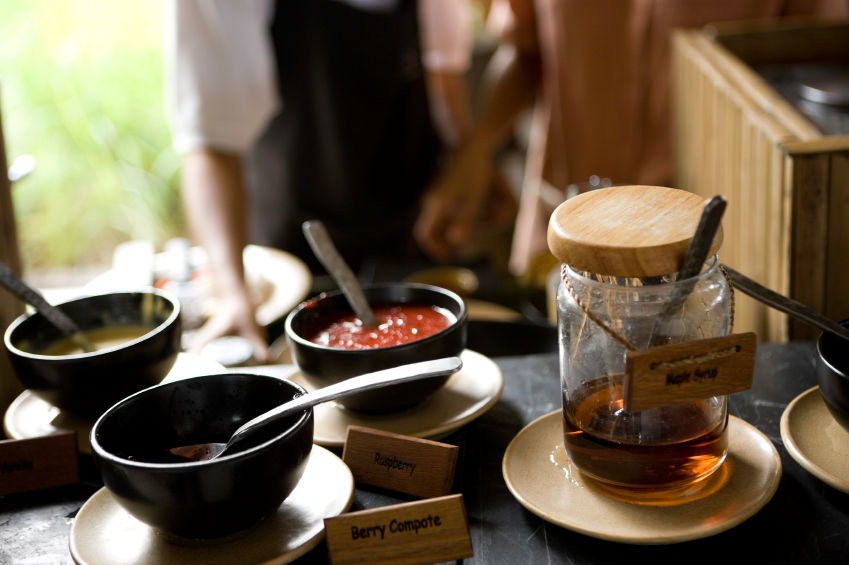Stuck in a cooking rut or on a tight budget? Paola Bassanese tells us why foraging for food is great for our health, pockets and the environment – and has some tips to get you started
Foraging has become a force to be reckoned with in the food industry: celebrity chefs like Hugh Fearnley-Whitting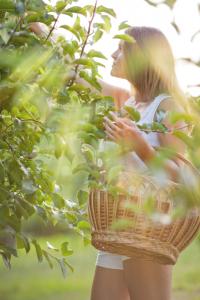
You don’t need to live in picturesque Devon, the River Cottage rural location: you can do a spot of foraging in urban places like London, too
If you are a fan of the River Cottage TV series you will know that wild foods feature heavily in the shows, and for good reason: who wouldn’t want to try some elderflower champagne?
You don’t need to live in picturesque Devon, the River Cottage rural location: you can do a spot of foraging in urban places like London, too.
I live in London, in a leafy suburb, and I first discovered foraging during childhood in idyllic Italy: I would go with my family to pick wild asparagus in the spring and blackberries in the summer. It was a great bonding activity to do as a family and it was always fantastic to bring home those fresh and tasty goodies.
Unlike studying for an exam, learning at your own pace is a welcome change and a leisure activity that will bring you pleasure without the pressure
If you fancy having a go at foraging, you first need to find some good reference books and learn as much as possible about plants and, if you can, go on some guided walks with someone who knows about wild plants to use in cooking. Meanwhile, here are some of the key reasons you need to get foraging into your life
1. Foraging gets you outdoors
Are you a desk-jockey? Are you surrounded by buildings? Getting out in the fresh air is bound to do you some good, as long as you avoid areas with heavy traffic.
If you live in London, for example, you will easily find a local park to go to for a leisurely lunchtime stroll. Carve out 20 minutes out of your busy schedule, grab a canvas bag (better for the environment than a plastic bag) and a foraging reference book and have a look around for potential edible plants: ribwort is a good all-round plant that is easy to identify and is pleasant-tasting.
2. Wild foods are packed with nutrients
We have all heard of the health benefits of kale: only 50 grams will provide you with 100 per cent of your daily allowance of vitamins A and C.
Kale is, of course, a cultivated vegetable, but did you know that you can find plenty of humble weeds that have just as many health benefits as kale?
You can find plenty of humble weeds that have just as many health benefits as kale
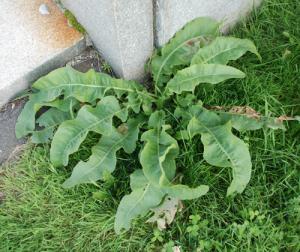
A great way to get some foraged dock leaves into your diet is to make dock leaf chips: just as you would do with kale chips, you simply sprinkle the leaves with a drizzle of olive oil and a pinch of salt and dry them in the oven until crispy. Add a squeeze of lemon juice or apple cider vinegar to make them more appetising.
3. You can forage anywhere, even in urban – yes urban – environments
Why not try a different route to work tomorrow or explore a different part of town this weekend? You will soon discover some green spaces you didn’t know about.
Look at the map for your local area: you are likely to see some green spots you didn’t come across before. You can set yourself a weekly challenge to explore a new area: you can walk or cycle and combine foraging with sightseeing.
4. Foraging gets you into the habit of tasting something new
When was the last time that you tried a new dish or a new ingredient? We are time-deprived and always on the run, and we tend to rely on ready meals and take-aways when we simply don’t have any spare time to cook. We also end up being stuck in a rut eating the same foods.
Senses heightened, taste buds titillated, these sensations create a sense of happiness and well-being
Imagine coming across some wild cherries or blackberries on your way back from work: the smell, the taste, the satisfying reward of the discovery. Senses heightened, taste buds titillated, these sensations create a sense of happiness and well-being. This shift in your mood is likely to make you feel less stressed.
5. Foraging gives you the opportunity to learn
Don’t have time to go to an evening class? Learning about wild plants can be done when you are commuting to work or during your lunch break: you just need a few reference books (see a list of my suggestions at the end of this post) and a bit of patience. Unlike studying for an exam, learning at your own pace is a welcome change and a leisure activity that will bring you pleasure without the pressure. Start simply with a basic manual to help you identify plants: a good example is Food for Free by Richard Mabey.
6. Foraged food is great for a tipple
From alcoholic wines and beers to healing herbal teas, wild flowers, leaves, berries and roots can provide you with a variety of ingredients for liquid refreshment.
While making dandelion root beer or elderflower champagne are time-consuming processes that require a minimum of technical skill, elderflower cordial or nettle syrup can be made easily in your kitchen.
Try this recipe for nettle and elderflower cordial:
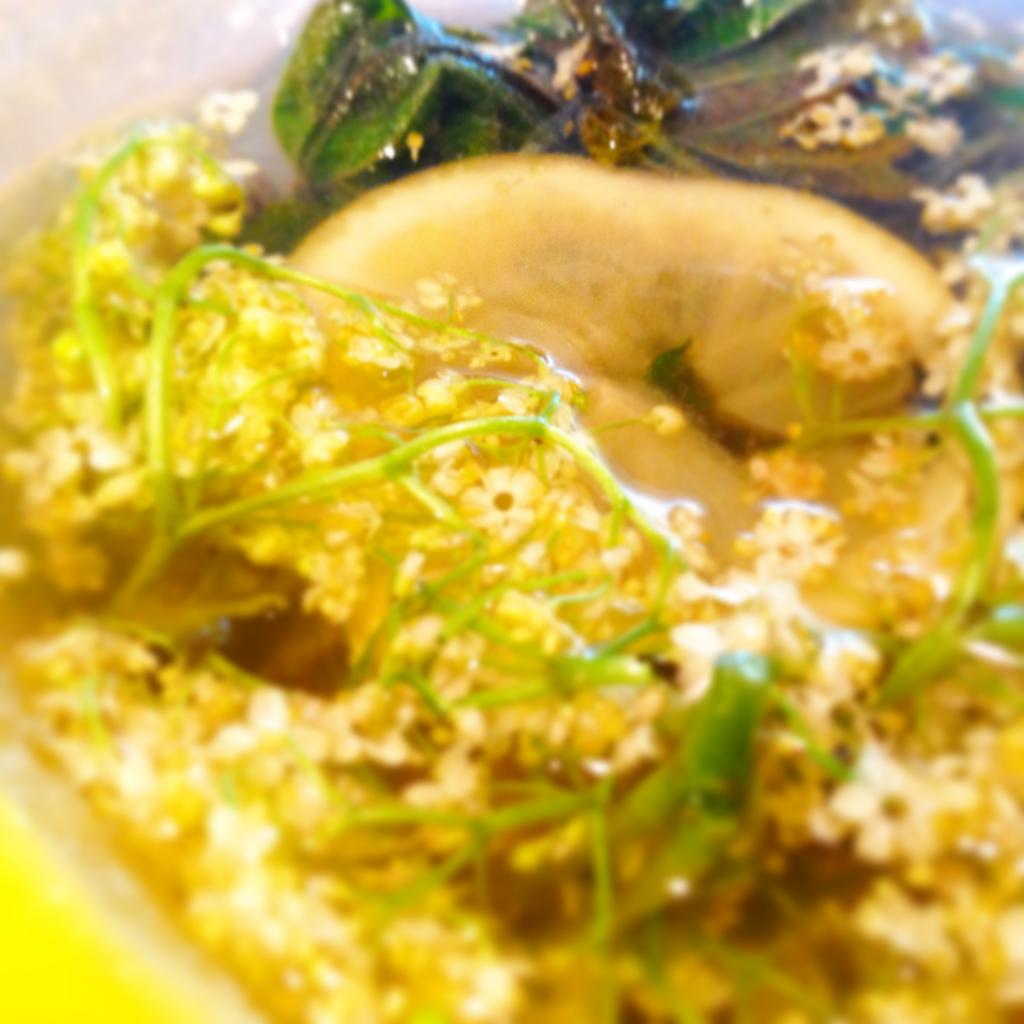
7. Foraging can reduce your food budget (and your carbon footprint)
Foraging is good for your wallet: personally, I have saved 30 per cent on my food budget by picking wild vegetables instead of buying vegetables at the supermarket. Sure, you can’t guarantee that you will find edible plants every week, but cutting some of your costs is always a bonus.
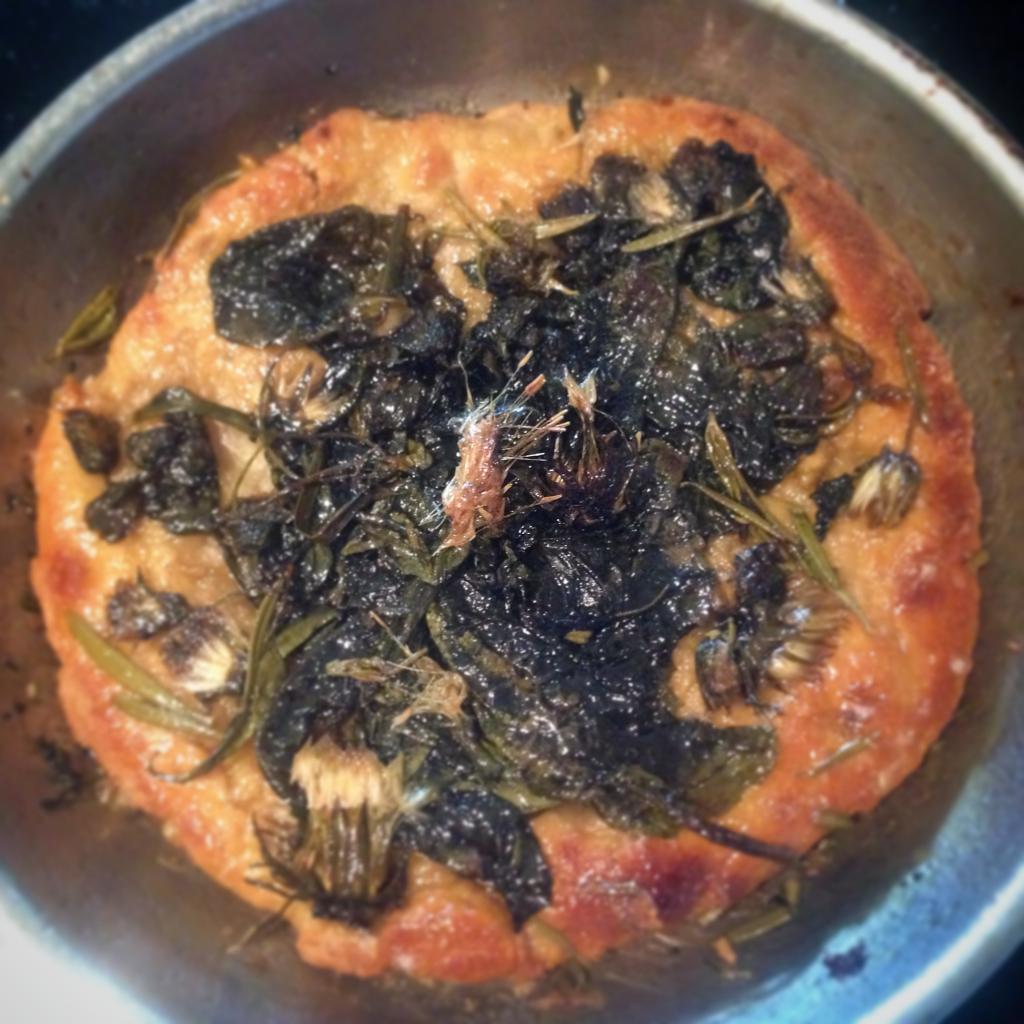
Bagged salad leaves from supermarkets was reported to represent a high proportion of food waste in the UK. They are quite expensive and they spoil quickly after you open a bag. Using foraged leaves like sow thistle can save you money and can help the environment.
I have saved 30 per cent on my food budget by picking wild vegetables
Fruit can also spoil quickly and is often thrown out. If you consider the time and effort it takes to pick your own fruit when you go foraging, you are less likely to throw away what you have gathered and more likely to find ways to use it in cooking.
100 grams of fresh rose hips contain more than 700% of your vitamin C allowance
8. Foraging helps you stop and smell the roses
Did you know that wild rose (dog rose) has plenty of health benefits? When it goes to seed it produces red berries which are rich in vitamin C. So, next time you are out for a morning run, don’t forget to plan a stop to pick some rose hip berries to make a vitamin-infused recovery tea for when you get back home. Vitamin C has been found to help with muscle tissue repair and general recovery after a workout.
If you’d like to get your vitamin C fix from rose hips (and also save money on expensive supplements), you can find them from September onwards. 100 grams of fresh rose hips contain more than 700 per cent of your vitamin C allowance. Remember that dried rose hips will have lost most of their vitamin content, though.
9. Foraging can get you out of your cooking rut
Do you find yourself cooking the same meals, day in, day out? When you start adding new ingredients that you picked yourself, you will notice that you will become more adventurous in the kitchen, trying new recipes.
In my experience, coming across a new wild plant prompts me to do some research and to look up recipes. I always end up creating new recipes as a result.
10. Foraging is great if you care about the environment
We mentioned our carbon footprint: when we buy asparagus flown over from Peru or cherries flown over from Morocco, do we stop and think of our impact on the environment? Unfortunately the majority of us can’t have our own allotment to grow organic food locally, but farmers’ markets offer a good alternative. Some farmers’ markets also sell foraged foods like wild garlic, which is an excellent ingredient for a variety of dishes.
11. Fermenting foraged food is fun too
You will discover so many amazing new flavours when you ferment wild foods
Wild garlic mustard kimchi, anyone? If you have tried fermenting foods like cabbage to make your own kimchi, the traditional Korean recipe, you will discover so many amazing new flavours when you ferment wild foods. Wild garlic mustard is a great example: it’s fragrant and full of flavour. It’s actually quite an obnoxious weed, as it tends to overtake cultivated fields and woodland. So, do the environment a favour and start munching on some wild garlic mustard, which you can pick during the spring and early summer.
MORE: 12 health food trends for 2015
12. Foraging will help you get more spice in your life
You don’t need exotic ingredients to make food more interesting: you can simply start learning more about the humble herbs and spices that grow spontaneously all around us, like mint. There are so many varieties of herbs you can choose from.
Learn one plant at a time: observe it, take a picture, smell it, taste it (check that it’s edible first, of course!). The best way to retain information in our brain is to learn using all our senses.
Bitter herbs have been used for centuries to help our bodies detox naturally
13. Foraging will help you discover new flavours
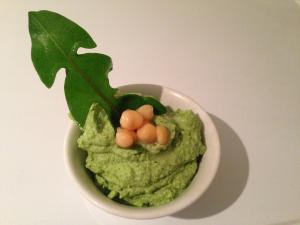
We all know what processed foods tastes like: very sweet, very savoury, very bland. Our taste buds are probably getting lazy being exposed to the same flavours. Bitter is not a flavour we normally associate with pleasant sensations, but bitter herbs have been used for centuries to help our bodies detox naturally.
Dandelion is a great example of a bitter plant with fantastic health benefits. You can add some to hummus, for instance, or you can boil it and add it to a potato salad.
4 GREAT FORAGING BOOKS TO GET YOU STARTED
Are you ready to go foraging? Here are some great books to get you started:
Paola Bassanese, The Foraging Home Cook – Basic, £3.99
Roger Phillips, Wild Food: A Complete Guide for Foragers, £16.00
John Lewis-Stempel, Foraging: The Essential Guide to Free Wild Food, £6.29
Robin Harford, Eatweeds Gourmet Wild Food Recipes, £1.99 on Kindle

, a reference guide on the benefits of walking.
Paola writes for the Huffington Post and other publications covering health trends and complementary medicine.
Follow Paola on Twitter
Like this article? Sign up to our newsletter to get more articles like this delivered straight to your inbox.



